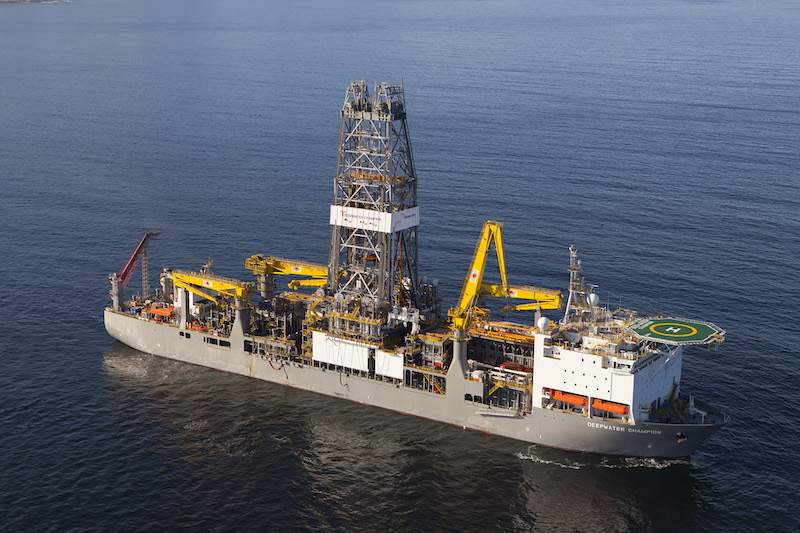The world’s largest owner of deep-water oil rigs, Transocean, could soon be forced to file for bankruptcy after measures it took to stave off this very possibility, seem to be backfiring.
While on contract with ExxonMobil, Transocean drill ship, Deepwater Champion, famously struck oil at the Liza field in the Stabroek Block offshore Guyana in 2015, which was the largest discovery anywhere in the world at the time.
According to a Bloomberg report, the company has engineered a bond swap to trim some of its $9 billion debt load and ease the crunch caused by slumping energy prices. But other creditors, led by Whitebox Advisors LLC and Pacific Investment Management Co., say the transaction amounts to a default because it pledges assets that Transocean already promised to them.
They’ve given the company until Dec. 1 to cure the default, according to a court filing. Bloomberg said the creditors are seeking a settlement but would be prepared to demand immediate repayment of their debt if a deal cannot be reached, which could lead to Transocean filing for bankruptcy.
A spokeswoman for Transocean declined to comment beyond the company’s public court filings, Bloomberg reported. Representatives for Pimco and Whitebox also declined to comment.
Transocean has said in court papers that the default claim is baseless and should be dismissed. It called Whitebox “a dissident minority noteholder seeking to force the company into bankruptcy,” and said the default notice threatens “access to liquidity that is essential to the company’s continued successful operations.”
On paper, Transocean is in better shape than some of its rivals. Led by Chief Executive Officer Jeremy Thigpen and headquartered in Steinhausen, Switzerland, the company has enough liquidity and contracts to keep operating until 2023, according to industry watchers.
That stands in contrast to peers Diamond Offshore Drilling Inc., Valaris Plc and Noble Corp., all of which went bankrupt earlier this year. They’re in trouble in part because oil prices have slumped below $40 a barrel, where it’s hard to make a profit, and because offshore oil is among the most expensive to produce.
According to the Bloomberg report, the Transocean dispute revolves around its August offer to swap various bonds for as much as $750 million in new notes maturing in 2027. The group of creditors, who own at least 50% of Transocean’s priority guaranteed notes maturing in 2025 and 2027, say the exchange is forbidden because the company issued new senior debt guaranteed by assets that were already to pledged to their existing notes.
They initially claimed the “fraudulent and coercive” exchange offer contained misleading statements, and sought to have the exchange halted entirely, according to a complaint filed in federal court. Judge George B. Daniels denied the request, and Transocean went ahead with the deal, extending the deadline. The company also filed a counterclaim against the creditor group, asking Judge Daniels to dismiss the default notice.



